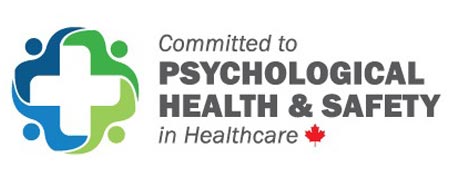Although there are many duties a union is responsible for, there are specific responsibilities in relation to workplace mental health such as advocating for psychologically healthy and safe work environments and providing support for those that may be experiencing mental health concerns. Unions may contribute through educating organizations of the benefits from policy change or helping members by seeking support accommodations, appropriate return to work requirements, or obtaining resolution for workplace conflict.
The Workplace Strategies for Mental Health website provides strategy tools and documents for unions to help support advocacy and support member’s expectations.
Find Unions Strategies to Help Workers with Mental Health Issues!
Here are 20 questions unions should ask (or you should ask what your union does) to increase mental health awareness, initiatives, and resources:
- Do our representatives/members have adequate awareness and training to identify a worker who may be experiencing a mental health issue?
- Do we have performance indicators and evaluation methods to objectively evaluate how we address mental health issues in our workplace?
- Do our representatives participate in the development of reasonable accommodation plans for workers that address emotional, psychological and interpersonal challenges?
- Do we effectively support a workplace culture that allows for open communication among workers, management, and union and is free from stigma and discrimination?
- Do our representatives understand our role in helping to participate and assist with the duty to accommodate?
- Do our representatives understand our role in helping to eliminate harassment and bullying in the workplace?
- Do we advocate for collective agreement wording that supports worker mental health and psychological safety?
- Does our collective agreement address reasonable accommodation?
- Are we sufficiently aware of accommodation options related to mental health issues that offer viable alternatives to suggestions put forward by management?
- Do we have a Joint Accommodation Committee that collaborates with management on reasonable accommodations that are successful for the worker with minimal impact on the collective agreement?
- Do our representatives understand the requirement of confidentiality when discussing a worker’s personal medical information?
- Do our representatives know how to handle a disclosure of mental illness from a worker?
- What is our approach for dealing with co-worker resentment of accommodation?
- Do our representatives model healthy and respectful workplace behaviours?
- Are we aware of and trained in approaches that assist us to intervene effectively in co-worker conflict?
- Are we aware of the resources, expertise, and supports that our union leadership offer to help us with mental health or psychological safety issues?
- Is there a process in place to respond to a request to provide more evidence of the need for reasonable accommodation?
- Is there a process in place to respond when a reasonable accommodation request is denied?
- Is there a system in place to offer support to union representatives who are emotionally exhausted?
- Does our union provide support in the interpretation of the collective agreement and are workers aware of how to access this support?





